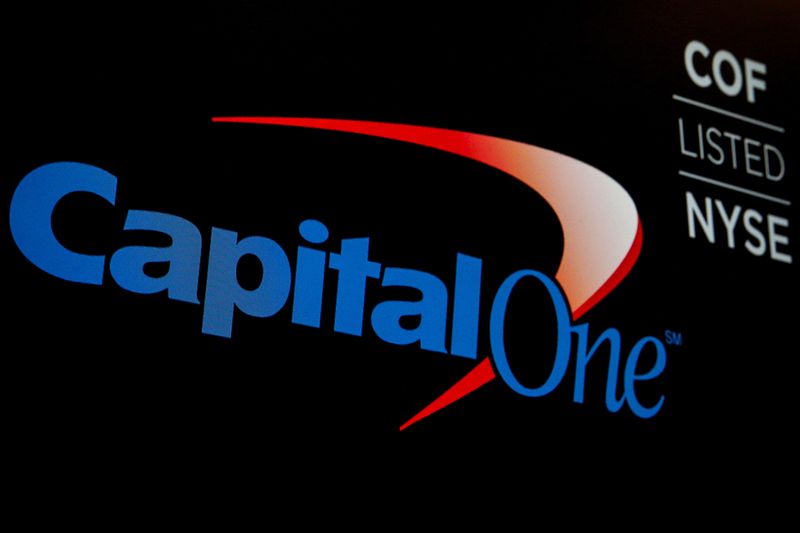By Chris Prentice, Saeed Azhar
NEW YORK (Reuters) -U.S. banking regulators said on Friday they approved Capital One’s $35.3 billion purchase of Discover Financial Services, paving the way for the combined firms to become the nation’s eighth-largest bank.
The deal has been closely watched by financial executives, who see it as a litmus test for how quickly the administration of President Donald Trump will approve mergers in a sector they see as ripe for consolidation.
The Federal Reserve and Office of the Comptroller of the Currency said they completed a “fulsome review” of the banks’ 2024 application, approving a deal set to create the biggest U.S. credit card issuer by balances, and give Capital One control of Discover’s extensive card payment network.
The combined entity will become the eighth-largest bank covered by government deposit insurance, the Fed said. Its assets of about $637.8 billion will comprise 2.2% of the nation’s insured deposits.
Capital One and Discover have received all the necessary regulatory approvals for the deal, which will close on May 18, the companies said in a joint statement.
Capital One will become one of the biggest payment-processing networks in the country, competing against Visa and Mastercard.
The combination “will increase competition in payment networks, offer a wider range of products to our customers, increase our resources devoted to innovation and security, and bring meaningful community benefits,” said Michael Shepherd, interim CEO and president of Discover.
Better Markets, an advocacy group, was critical of the tie-up. The combination will reduce competition, provide less consumer choice and lead to higher fees and costs for consumers, said Shayna Olesiuk, director of banking policy at Better Markets, which was founded after the 2008 financial crisis.
The combined U.S. credit card firm would compete with JPMorgan Chase, Citigroup and others.
The OCC’s approval is conditioned on plans for corrective actions to address the root causes of any outstanding enforcement actions against Discover, the regulator said.
The Fed also imposed a regulatory punishment known as a consent order on Discover alongside a fine of $100 million for overcharging fees from 2007 to 2023.
Another banking regulator, the Federal Deposit Insurance Corporation, separately said it was ordering Discover to pay a $150 million civil fine for overcharging fees.
The Justice Department previously concluded there were no competition concerns compelling enough to block the deal, according to news reports.
(Reporting by Chris Prentice and Saeed Azhar in New York, Editing by Lananh Nguyen, Franklin Paul and Matthew Lewis)


